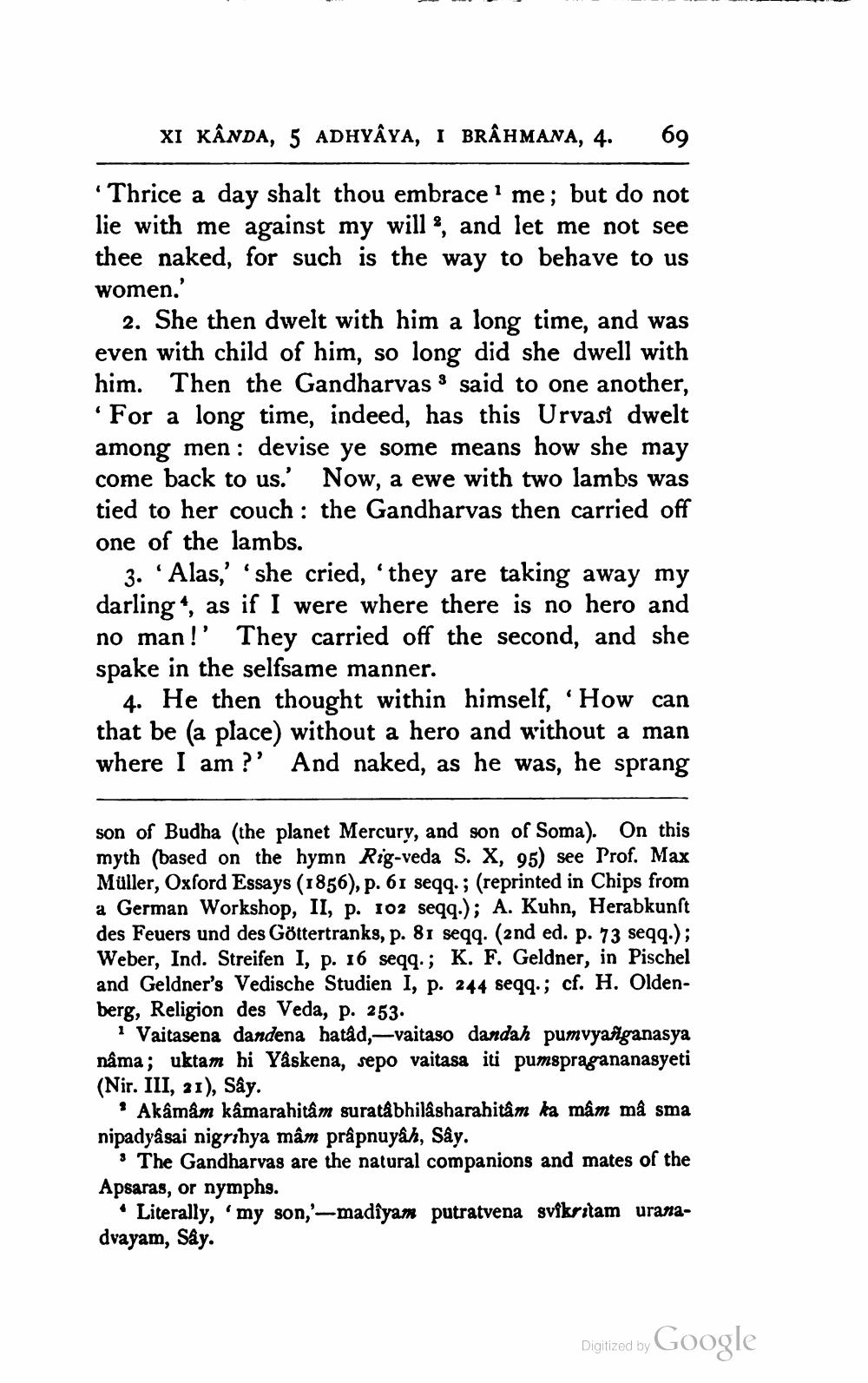________________
XI KÂNDA, 5 ADHYÂYA, I BRÂHMANA, 4.
69
Thrice a day shalt thou embrace ? me; but do not lie with me against my wills, and let me not see thee naked, for such is the way to behave to us women.'
2. She then dwelt with him a long time, and was even with child of him, so long did she dwell with him. Then the Gandharvas 8 said to one another,
For a long time, indeed, has this Urvast dwelt among men: devise ye some means how she may come back to us. Now, a ewe with two lambs was tied to her couch : the Gandharvas then carried off one of the lambs.
3. ‘Alas,' she cried, 'they are taking away my darling -, as if I were where there is no hero and no man!' They carried off the second, and she spake in the selfsame manner.
4. He then thought within himself, “How can that be (a place) without a hero and without a man where I am ?' And naked, as he was, he sprang
son of Budha (the planet Mercury, and son of Soma). On this myth (based on the hymn Rig-veda S. X, 95) see Prof. Max Müller, Oxford Essays (1856), p. 61 seqq. ; (reprinted in Chips from a German Workshop, II, p. 102 segg.); A. Kuhn, Herabkunst des Feuers und des Göttertranks, p. 81 segg. (2nd ed. p. 73 seqq.); Weber, Ind. Streifen I, p. 16 segg.; K. F. Geldner, in Pischel and Geldner's Vedische Studien I, p. 244 seqq.; cf. H. Oldenberg, Religion des Veda, p. 253.
1 Vaitasena dandena hatád, -vaitaso dandah pumvyañganasya nâma; uktam hi Yåskena, sepo vaitasa iti pumspragananasyeti (Nir. III, AI), Sây.
: Akamầm kamarahitâm guratibhildsharahitâm a mâm mà sma nipadyêsai nigrihya mâm prâpnuyên, Sây.
3 The Gandharvas are the natural companions and mates of the Apsaras, or nymphs.
Literally, 'my son,'-madîyam putratvena svikritam uranadvayam, Tây.
Digitized by Google




